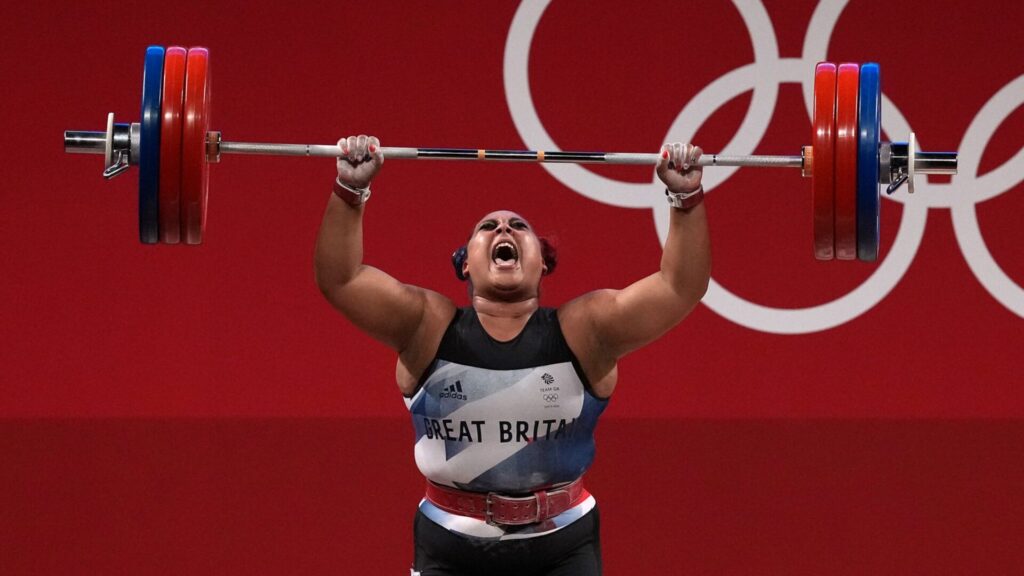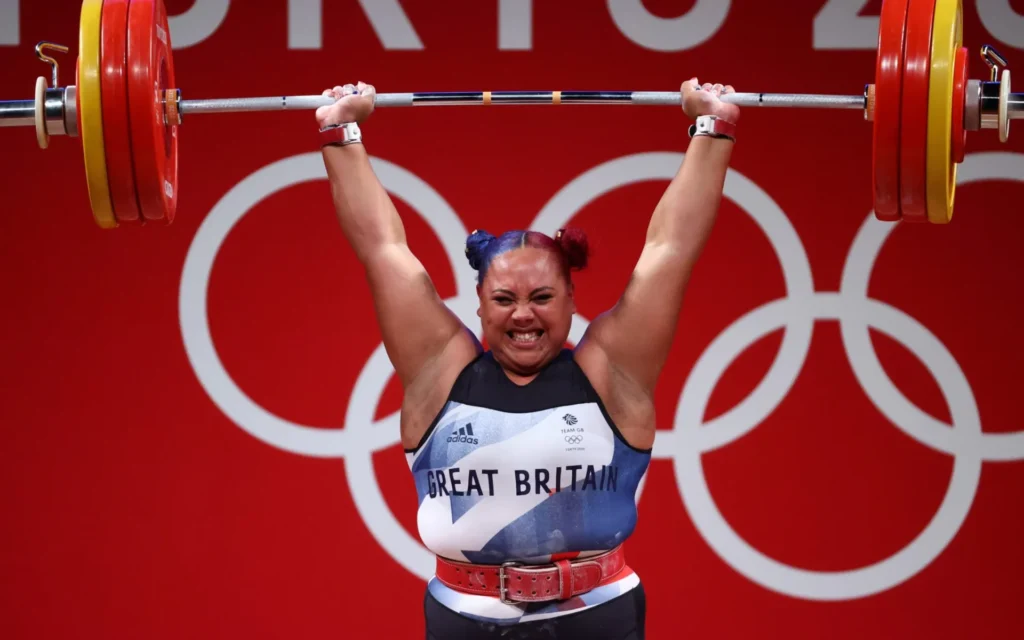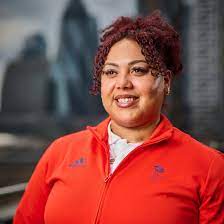
The first British woman to win an Olympic weightlifting medal is a favourite for further glory in Paris.
Emily Campbell exhaled deeply, yelled a battle cry, and marched boldly onto the stage for her final lift at the Tokyo 2020 Games. She moved up to the barbell, taking a firm stance and looking straight ahead.
Seconds later, she made history by lifting a British and Commonwealth clean and jerk record of 161kg to claim silver and become the first female British weightlifter to win an Olympic medal. She went to her hands and knees, screaming and crying.
It was one of the Games’ most poignant moments, and it defied expectations for a young lady who had risen to the peak of her sport with only five years of experience and no government financing.
The 30-year-old concedes that the situation has changed considerably since the delayed Tokyo Games, which were held in empty stadiums and auditoriums in the aftermath of the Covid epidemic. On the final day of the Games, August 11, she will participate in the +81kg super heavyweight category as one of the favourites.

“”Nobody knew who I was before Tokyo,” she explains. “So there’s a lot more pressure on these Games, but I enjoy pressure. “I’m excited to perform live.”
Campbell’s form after Tokyo was excellent. UK Sport provided post-Olympics financing, and her European victories in 2021 and 2022 were supplemented by a bronze at the 2021 World Championships and a silver in 2022. In 2022, she broke the Commonwealth Games women’s weightlifting record and won gold in the +87kg event.
However, in 2023, she was stricken by injury, with knee surgery and back troubles causing her to withdraw from the world title race (she won the European title “by the skin of my teeth”). When asked about the year, a shadow appears across her face. “It’s quite difficult because you come off such a high [of] being at your absolute best and doing phenomenally, and then you’re always in rehab, attempting to return to the athlete you were. It is quite difficult mentally. It’s quite challenging physically.
A beat later, her optimism returns. “We entered 2024 with a few challenges, but we were able to work them out. I am in great form right now, and everything is going well.”
She goes on to argue that adversity has prepared the athlete for Paris 2024. With gold in Sofia in February, she joined the ranks of only a few athletes who have won four consecutive European medals.
“You think if I can go through all of that, then anything that’s hit at me, I can handle it,” adds the woman. “That is the mindset I am carrying into Paris. Whatever is thrown at me. I’m prepared since we were in the trenches last year and survived.”
Campbell is the only super heavyweight female athlete from Europe to have qualified. Li Wenwen, a 24-year-old Chinese athlete who set Olympic records in the snatch and clean and jerk, will be one of her competitors.
“The Chinese have had a wealth of success in weightlifting; they’re fantastic at it,” adds Campbell. “But we are closing the gap now, and I just know that I’m going to be in the best shape that I can possibly be on the day; I’m going to put in the best performance that I can, and whatever that rewards me with, I will be more than happy.”
When the time comes, she may have no idea what weight she is attempting to lift because she delegated the decision to her team, who are hurriedly hammering out the math behind the scenes. “I know that my coaches will never put something on the bar that they don’t think I’m capable of,” she tells me.
“I had no idea I had received a silver medal in Tokyo. That was simply a bonus when I walked off stage and they told me, which was very great.”
When asked to explain the few seconds preceding a lift, she stops. “There is no feeling, no cognition. You can barely hear anything. “I need to align with the bar, and now is the time to take action.”

Following a difficult qualifying process leading up to the Games, Campbell was named GB Weightlifting’s solitary representative. The number of weight classifications was reduced from seven to five, resulting in some colleagues fighting in unfamiliar weight classes for fewer slots. But she feels the future is bright.
“We need that time to be able to develop our sport,” she points out. “I am confident that we will soon represent more. This time, I’ll have to deal with everything on my own, which I’m fine with.”
She surely has the shoulders, quadriceps, and glutes to handle the duty. When asked about her relationship with her incredibly strong body, she is mindful and conscious of the powerful message it conveys. She has become a well-known figure in the body acceptance movement, with firms such as Aldi, NatWest, and Dreams Mattress eager to sign her.
She gestures to the scars at the base of her neck, caused by hundreds of barbells resting there before being released into the air. “That’s become a part of who I am,” she says. “I consider myself quite fortunate to be able to accomplish such a feat. “I have to thank my body for that.”
As someone whose body has changed substantially – she weighed around 95kg nine years ago and now weighs between 128kg and 131kg – she considers the long term and recognizes the numerous health benefits linked with weightlifting. “Especially as women, our body is always going to be a journey, we’re never going to look the same at any point in our life,” she goes on. “It’s about learning to embrace and love all the different stages of that, and looking for the beauty in all of them.”
Campbell has no concrete ambitions for a post-weightlifting career, however she would like to try her hand at commentary or presentation. Her long-term ambition is to build a youth and development gym in Nottingham to give back to the community that helped her go to her first Olympics, from market vendors who gave her free fruit and vegetables to small businesses that sponsored her travel to international contests.
Her whole concentration right now is on Paris. If she has pre-Games anxieties, she conceals them brilliantly. “It’s going to be really special this time,” she adds, smiling. “I hope to share another historic moment with my family and friends, this time in person.”